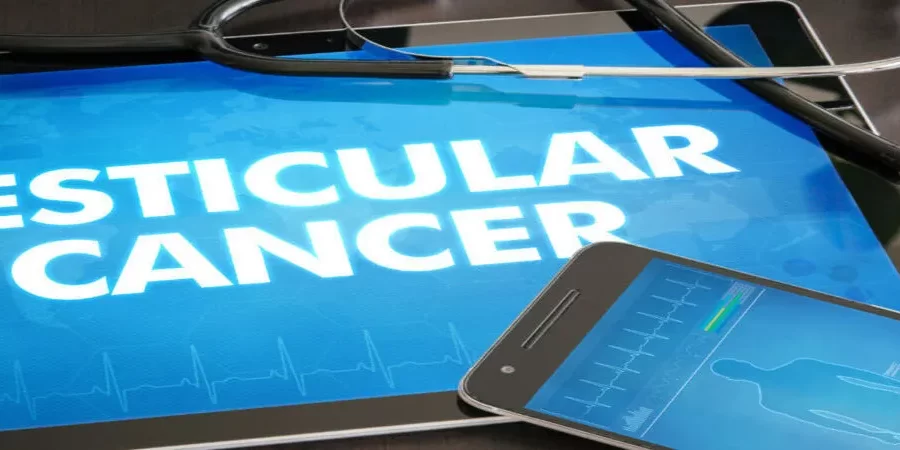According to studies, testicular cancer affects one out of every 250 males at some point in their lives. It’s a relatively rare cancer that tends to strike at a younger age, unlike most malignancies. The average age at which a person is diagnosed is 33. The good news is that the cure rate is relatively high, especially when detected early.
In this article, Dr. Sandeep Nayak, an experienced cancer specialist in Bangalore, India, talks about testicular cancer in young adults and its treatment options.
He is the Founder and Chief of Surgical Oncology at MACS Clinic, Bangalore, and Director of Surgical Oncology, Professor and HOD of Minimal Access Surgical Oncology at Fortis Cancer Institute, Bannerghatta Road, Bangalore.
Why are young adults more at risk of getting testicular cancer?
Testicular cancer is the most prevalent type of solid tumor in teenage and adult men between the ages of 13 and 40; however, it can strike at any age from childhood to adulthood. The good news is that majority of testicular malignancies can be cured.
The main risk factor is present from birth. Boys born with an undescended testicle are more likely to develop testicular cancer later in life.
“Even if an undescended testicle has been surgically addressed, the risk of developing testicular growths persists, and they should be regularly monitored,” Dr. Sandeep Nayak, one of the best oncologist in India, explains. “Men with a family history of the disease are likewise at a higher risk.”
Men in their early 20s and early 40s are more likely to develop testicular cancer. Dr. Sandeep Nayak adds that when men are younger, their testes produce more testosterone and sperm, increasing their risk of cancer. Caucasian males may also be at a higher risk than men of other races.
What are the symptoms of testicular cancer, and how can you know if you have it?
A bump or lump on the testicle is generally the first sign of testicular cancer. The growth is normally painless, but it expands rapidly over a few weeks. It frequently results in a trip to the doctor.
Dr. Sandeep Nayak, an expert cancer specialist in Bangalore, states, “If a patient comes to us with an abnormal growth on their testicle, we’ll request an ultrasound to investigate it further.” “If that raises a suspicion of cancer, we run blood tests to look for tumor markers, which are cancer indications.”
When testicular cancer metastasis, it typically affects the liver, lymph nodes, and lungs. Imaging tests, such as a CT scan to look for enlarged lymph nodes in the abdomen and a scan or X-ray of the chest to look at the lungs, are other diagnostic procedures that the patient may have to undergo.
What is the treatment for testicular cancer?
Removing the diseased testicle is the most common treatment for testicular cancer. According to Dr. Sandeep Nayak, the testicle is removed through a groin incision and submitted to a pathologist to evaluate whether additional treatment is required.
Most men heal within a week of surgery and are advised to avoid straining or lifting heavy things for up to six weeks.
Chemotherapy is usually indicated if the pathologist determines that further treatment is required owing to concerns about the cancer spreading.
The sooner the testicular cancer is diagnosed, like with most malignancies, the better the prognosis. The overall cure rate is high: more than 90% of males are cured.
Men who wish to start a family are sometimes anxious about how testicular cancer therapy would impact their fertility. According to Dr. Sandeep Nayak, the removal of one testicle should not harm fertility, although chemotherapy is a concern.
“You should be able to father children with a completely healthy testicle on the other side,” explains one of the best oncologist in Bangalore, “but additional treatment, such as chemotherapy, can be hazardous to your sperm.” “We talk to patients about sperm banking in advance in case they desire to have children in the future.” Further, he also offers testis-sparing surgery to suitable patients.
You must include a testicular exam in your annual health check-up, but you should contact your doctor immediately if you discover a lump between tests. Periodic self-examinations may be advised, particularly for men at a higher risk due to an undescended testicle.
“It’s a simple thing to detect if you check yourself on a regular basis, and it’s treatable cancer,” adds Dr. Sandeep Nayak. “So, even if you are someone who suffers from this, there’s a lot of hope.”

